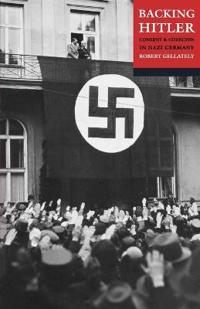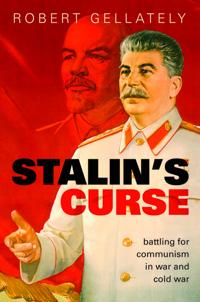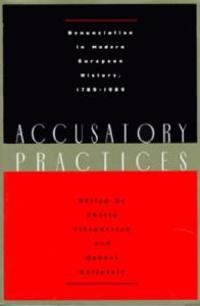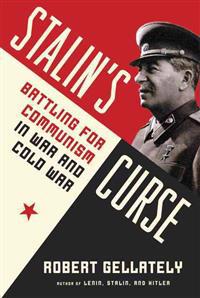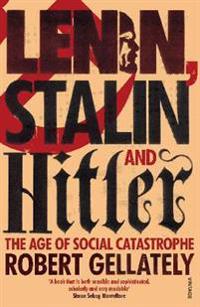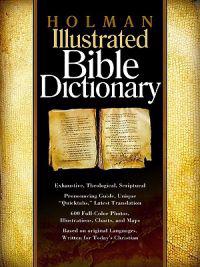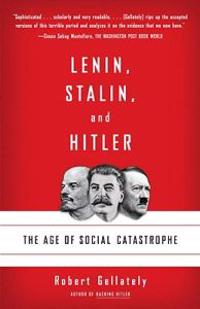Backing Hitler (Häftad)
avRobert Gellately
ISBN: 9780192802910 - UTGIVEN: 200203The Nazis never won a majority in free elections, but soon after Hitler took power most people turned away from democracy and backed the Nazi regime. Hitler won growing support even as he established the secret police (Gestapo) and concentration camps. What has been in dispute for over fifty years [...]
Gestapo and German Society, The: Enforcing Racial Policy 1933-1945 (Pocket)
avRobert Gellately
ISBN: 9780198202974 - UTGIVEN: 1991-11-07Stalin's Curse (Inbunden)
avRobert Gellately
ISBN: 9780199668045 - UTGIVEN: 201303The Second World War almost destroyed Stalin's Soviet Union. But victory over Nazi Germany provided the dictator with his great opportunity: to expand Soviet power way beyond the borders of the Soviet state. Well before the shooting stopped in 1945, the Soviet leader methodically set about the unpre[...]
Accusatory Practices (Häftad)
avSheila Fitzpatrick, Robert Gellately
ISBN: 9780226252742 - UTGIVEN: 1997-08The opening of the Stasi archives in 1989 revealed the existence of denunciation and informing in police states, but such practices have long been known. This is an exploration of denunciation and informing in Europe in the two centuries between the French Revolution and the fall of the Berlin Wall.[...]
Stalin's Curse: Battling for Communism in War and Cold War (Inbunden)
avRobert Gellately
ISBN: 9780307269157 - UTGIVEN: 201303A chilling, skillfully delineated account based on newly released Russian documentation that reveals Stalin's true motives--and the extent of his enduring commitment to expanding the Soviet empire--during the years in which he seemingly collaborated with Roosevelt, Churchill, and the capitalist West[...]
Lenin, Stalin and Hitler (Häftad)
avRobert Gellately
ISBN: 9780712603577 - UTGIVEN: 2008-08Between 1914 and 1945 European society was in almost continuous upheaval, enduring two world wars, the Russian Revolution, the Holocaust and the rise and fall of the Third Reich. This title argues that these tragedies are all inextricably linked and that to consider them as discrete events is to mis[...]
Holman Illustrated Bible Dictionary (Inbunden)
avRobert Gellately
ISBN: 9780805428360 - UTGIVEN: 200309Lenin, Stalin, and Hitler: The Age of Social Catastrophe (Häftad)
avRobert Gellately
ISBN: 9781400032136 - UTGIVEN: 200808The Specter of Genocide (Pocket)
avRobert (EDT) Gellately, Ben (EDT) Kiernan, Robert (EDT) Gellately
ISBN: 9780521527507 - UTGIVEN: 2003-07Genocide, mass murder and human rights abuses are arguably the most perplexing and deeply troubling aspects of recent world history. This collection of essays by leading international experts offers an up-to-date, comprehensive history and analyses of multiple cases of genocide and genocidal acts, w[...]

